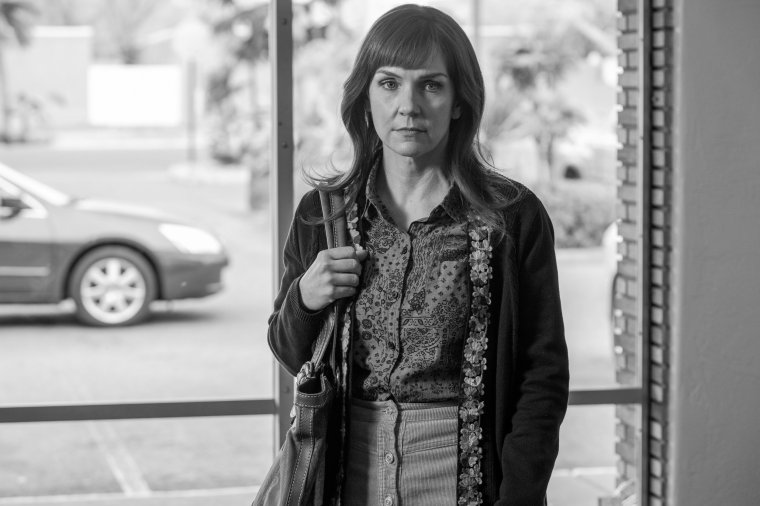This review contains spoilers
“They tell me they found you in a garbage dumpster… that makes sense,” Hank’s embittered widow Marie Schrader (Betsy Brandt) tells Saul Goodman (Bob Odenkirk) after Saul is finally arrested in his trash-filled hiding place in Nebraska. And after Jimmy/Saul/Gene’s increasingly callous behaviour in recent episodes of Netflix’s Better Call Saul, viewers would be hard pressed to disagree.
The final episode picks up in the monochrome present with Gene fleeing the cops after his run-in with Marion (the wonderful Carol Burnett), while the colour flashbacks feature Saul (as he was then) the fugitive in the New Mexico desert with Mike Ehrmantraut (Jonathan Banks), hiding out in a basement with Walter White (Bryan Cranston) and finally with his brother Chuck McGill. To the first two, he asks what they would do if they had a time machine – a recurring motif in this episode. Did he have any regrets, in other words, as Walter puts it more plainly.
Saul’s only regret was that he didn’t invest in Warren Buffett when the legendary investor began his share fund in 1965. “So, you were always like that,” is Walter White’s damning riposte. But if regret (or the lack of it in Saul’s case) is the bass note of this climactic episode, then redemption is the unexpected crescendo.
And redemption for Jimmy/Saul was only ever going to mean only one thing – or one person: his ex-wife Kim Wexler (Rhea Seehorn). Better Call Saul always picks up when Kim is the screen, and two recent Seehorn-free episodes dragged without her magnetic presence.
Kim is still enduring her Stepford Wife existence in Florida, albeit walking out of Palm Coast Sprinklers to volunteer at a local legal-aid centre. And then she hears of Saul’s arrest and that he is planning to throw her under the bus as part of his plea bargaining (having already had a potential 190-year sentence reduced to seven).
The Albuquerque side of Better Call Saul being a legal drama, there was always destined to be a climactic courtroom scene rather than a Breaking Bad-style shootout. And Saul – now officially reverting to his real name of Jimmy McGill – finally did the right thing. He claimed to have invented Kim’s involvement in Howard Hamlin’s death and took full responsibility for his own involvement in Walter White’s drugs operation.
Sentenced to 86 years, he quips with Kim (who’s now his lawyer) in a touching final scene at his maximum-security prison. “Yeah, but with good behaviour, who knows?”

My favourite scene, though, is Jimmy sitting on the prison transport bus when another inmate recognises him from his “Better Call Saul” adverts. Soon the whole busload of prisoners is chanting “Better Call Saul… Better Call Saul” forcing a reluctant, rueful smile from Odenkirk’s legally damned but morally redeemed lawyer.
So where does Vince Gilligan and Peter Gould’s drama rank in the pantheon of great American TV shows? It has surpassed its progenitor, Breaking Bad, and while in my view it’s not as profound as Mad Men or The Sopranos, it is surely one of the most beautifully directed of all premium dramas. I will miss all those oblique close-ups, witty camera angles, the crystal-clear cinematography and the lack of bossy incidental music.
The casting and performances have been terrific, too, and while Gilligan has intimated that this is the end of the Breaking Bad universe, there is surely more mileage in Rhea Seehorn’s Kim, perhaps focusing on her legal-aid work in Florida. And who knows, perhaps with good behaviour (and his own brilliant legal brain), Jimmy could make the occasional guest appearance as a parolee.

